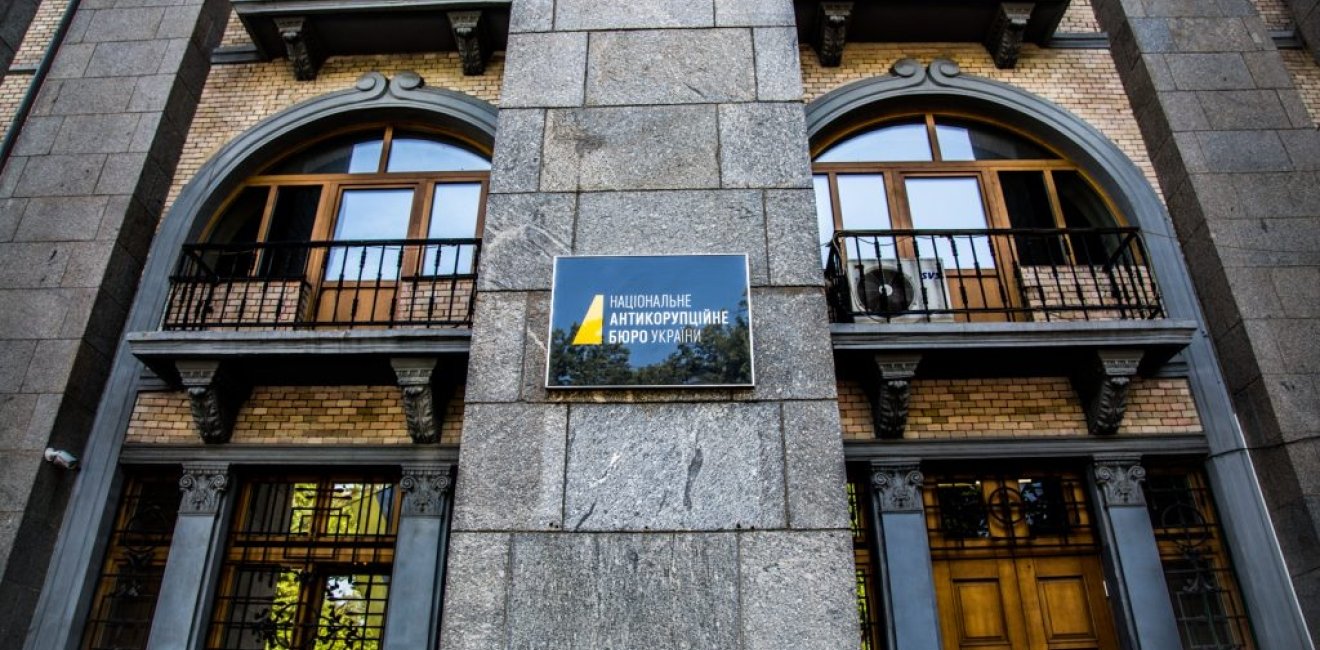
A blog of the Kennan Institute
BY MYKHAILO MINAKOV
A main drive in post-Maidan Ukraine has been getting anticorruption laws in place, then enforcing them. New institutions were created for this purpose, including the National Anti-Corruption Bureau (NABU), the National Agency to Prevent Corruption (NAPC), and the imminent National Anti-Corruption Court. But in March 2017 the anticorruption laws were amended to target civil society activists fighting corruption by requiring them to submit e-declarations of assets—the same filing required of elected politicians and cabinet ministers. The first filing deadline is April 1, 2018.
The legislation is expected to have a chilling effect on the work of individuals and NGOs engaged in uncovering corruption. Ukraine is not far enough along the path of reform that it can afford to suppress the work of anticorruption watchdogs. Nor is the retaliatory nature of this burdensome and pointless requirement lost on anyone. Ruling groups seem more intent on penalizing corruption fighters than on fighting corruption.
The new legislation was offered by the government in draft form to change earlier, even harsher amendments to the Law on Prevention of Corruption that were approved a year ago, on March 23, 2017. For almost a year, Ukrainian civil society and Western governments tried to reverse the situation; however, official Kyiv simply offered new legal acts that increased government control over NGOs.
On March 16, 2018, the European Commission for Democracy Through Law, better known as Venice Commission, published its opinion condemning the new draft laws that continued to include anticorruption activists among the public figures who have to submit their financial reports to the Ukrainian e-assets declaration system. The Commission stated:
“The new financial disclosure regime would conflict with human rights and fundamental freedoms, namely, the freedom of association, the right to respect for private life and the prohibition of discrimination. The Venice Commission and the OSCE/ODIHR cannot see a need for such amendments and recommend that they be reconsidered in their entirety.”
Ukraine’s Western partners tried their best to return official Kyiv to the core principle underlying regulations intended to prevent corruption in the public sector: those who decide how public funds are used must openly declare their assets and incomes. Consigning to this group individuals who have no role in decision making with respect to public funds was purely an act of revenge. As one of the MPs who supported these amendments said to me last summer, without irony, “Recipients of Western grants must now disclose their enormous incomes, not just us politicians.”
The retaliatory nature of the new policy was obvious from the moment the draft bill was proposed. As Ariana Gic pointed out in May 2017, critics of the law consider it an “ugly act of revenge [against] anticorruption civil society activists by the government as part of a larger campaign to thwart their reform efforts.” The retaliatory intent of the legislation and its implementation is clearly evident in two recent cases in which high-profile figures in the anticorruption movement came under enormous pressure.
In the first case, Hanna Salamatina, a whistleblower and the former head of the financial control department of the NACP, publicly accused the presidential administration of meddling with the NAPC check on e-declarations data. After raising the alarm, she was put under investigation herself, charged with financial mismanagement by her former supervisors. As Luke Drabyn and Samantha Feinstein, who recently reported on the case for the Atlantic Council, concluded, “In Ukraine, the agency tasked with protecting whistleblowers has instead fostered so much corruption that its own employees, after speaking out, have become victims of retaliation.”
In the second instance, Vitalii Shabunin, a leader of the Anti-Corruption Action Center, the preeminent Ukrainian anticorruption NGO, came under investigation for a physical confrontation with a person who had harassed Shabunin and his family and insulted his colleague over an extended period of time. Shabunin believes the Ukrainian Security Service was tracking his movements and providing information to his harasser. On January 19, 2018, the Reanimation Package of Reforms, a joint initiative of eighty Ukrainian pro-reform NGOs, appealed to the authorities of Ukraine to “stop the political persecution” of Vitalii Shabunin and tasked the judiciary with being objective and open in its investigation and maintaining impartiality throughout the proceedings.
Unfortunately, the mounting pressure on anticorruption fighters has tended to obscure the administration’s real anticorruption achievements.
In 2017 Ukraine was ranked 130 out of 180 countries on the TI Corruption Perception Index. Thus the expert perception is that corruption in Ukraine is back to the 2015 level, and much lower than it was in 2012–13, when Ukraine was ranked 144 out of 180.
This level of optimism among international experts is not, however, shared by rank-and-file Ukrainians. According to a recent poll conducted by the International Republican Institute (IRI) and the Ukrainian sociological group Rating, the most pressing issue for Ukrainians is corruption. (This choice was selected by 48 percent of poll respondents, compared to 42 percent who selected the military conflict in the Donbas as the most worrisome issue.) Commenting on these findings, the IRI’s Katie LaRoque rightly said that corruption sends a signal that institutions are not representing the interests of the people and plays into the Kremlin’s hands, whereas good governance weakens the strength of the Russian narrative among regions susceptible to it. As she points out, “the strength of democratic institutions and norms” will be critical to Ukraine’s strategic victory in the Donbas and Crimea, and to the future reintegration of the occupied territories.
Thus fighting corruption is ineluctably imbricated in Ukraine’s security and defense missions. Yet the rapid increase in Ukraine’s military spending to fight the war in the East has simultaneously opened the door to new opportunities for corruption in the defense sector, including insider deals, no-bid contracts for shoddy equipment, and illegal trading in goods with the non-government-controlled areas in Donetsk and Luhansk regions. According to the expert group NAKO, the Independent Defense Anti-Corruption Committee, the illegal trade in the noncontrolled regions, conducted largely through bribery and the falsification of goods transit permits, has become so rife as to be systematic, with networks among different services involved. Among the negative security consequences of this trade is the economic cooperation of Ukraine’s fighters with the militants; another is the incentive to provide false information to the command on the state of the fighting. Corruption in the defense sector thus poses an existential threat to Ukraine’s survival as a state.
With the rapid growth of Ukraine’s defense budget to meet needs in eastern Ukraine, it is critical that watchdog organizations be able to work unfettered to ensure that every hryvnia so designated is used appropriately to improve national security. It is corruption that must be fought, not watchdog organizations and whistleblowers.
And the next ten days will show if government changes its policy towards anticorruption civic organizations.
Author


Kennan Institute
After more than 50 years as a vital part of the Wilson Center legacy, the Kennan Institute has become an independent think tank. You can find the current website for the Kennan Institute at kennaninstitute.org. Please look for future announcements about partnership activities between the Wilson Center and the Kennan Institute at Wilson Center Press Room. The Wilson Center is proud of its historic connection to the Kennan Institute and looks forward to supporting its activities as an independent center of knowledge. The Kennan Institute is committed to improving American understanding of Russia, Ukraine, Central Asia, the South Caucasus, and the surrounding region through research and exchange. Read more

Explore More in Focus Ukraine
Browse Focus Ukraine
Talking to the Dead to Heal the Living

Ukrainian Issue in Polish Elections


